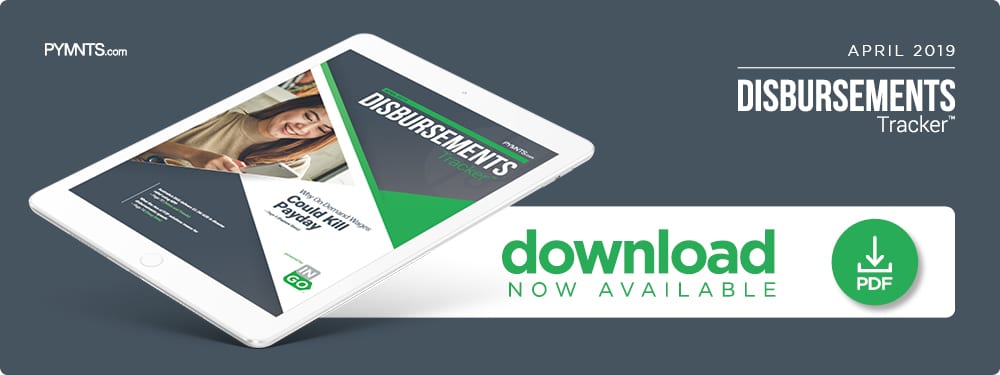Why On-Demand Wages Could Kill Payday

For the two-thirds of the U.S. population living paycheck to paycheck, the two-week wait can feel like an eternity. Yet, according to Mark Wes, head of risk, payments and compliance for payroll solutions provider Gusto, instant payments can be key to both helping employees tackle unexpected expenses and helping employers retain top talent. In the new Disbursements Tracker, Wes explains how on-demand payroll could render the traditional payday cycle moot.
The weekly or biweekly pay cycle can seem like an awfully long time for the roughly two-thirds of U.S. workers who live paycheck to paycheck — especially if they are hit by unexpected, costly events. According to the most recent PYMNTS Disbursement Satisfaction Index™, this wait is becoming unacceptable: 72.9 percent of surveyed consumers said having a choice in how they received their disbursements was “very” or “extremely” important, and only 50.3 percent were offered a choice at all.
The Index also discovered that the gig economy is among one of the first areas to disrupt the normal pay cycle. Faster payments are starting to become a mainstream concept for gig workers, with 53.5 percent of disbursements being made instantly. Access to these types of payments isn’t limited to just the gig economy, though.
Digital payroll solutions provider Gusto, for one, launched an instant payments solution — dubbed Flexible Pay — for small to mid-sized businesses (SMBs) last year, granting employees on-demand wage access. In a recent interview with PYMNTS, Mark Wes, head of risk, payments and compliance for the company’s subsidiary, Gusto Capital, spoke about Flexible Pay and how on-demand wages are challenging long-held perceptions of payday.
Helping workers avoid financial pitfalls
Flexible Pay, which is currently in use at Texas SMBs, utilizes direct deposit to disburse workers’ earnings as consumer loans. Gusto claims millions of dollars’ worth of loans have been issued to workers over the past nine months. On-demand wages allow them to be less beholden to scheduled pay periods, Wes said, adding that the service has seen increased adoption from SMBs in food services, including bakeries, restaurants and cafes, where many workers are on hourly shifts.
“The biweekly pay cycle is kind of a relic of old times,” he said. “[This] schedule delays people from getting the cash they’ve earned.”
On-demand earnings offer workers a financial lifeline should they be blindsided by unexpected expenses. Flexible Pay quickly disburses funds to employees’ bank accounts, preventing them from having to take out costly payday loans or incur hefty credit card debt in those instances. Additionally, the solution is available directly to employees, meaning workers do not have to explain to their managers or bosses why they seek their wages early.
“The employee controls when they want to cash out on wages they have already earned,” Wes said. “That means the employee doesn’t have to have that awkward conversation with [her] employer and ask for a payday advance.”
Wes believes that this discretion and convenience could contribute to overall worker happiness.
“We think that helps create a better workplace because people aren’t carrying around that financial stress,” he said.
Aligning payroll with expectations
Workers’ payday-related frustrations harken back to many of their first forays into earning money: allowances. Parents often task their children with household chores — whether they’re mowing the lawn or washing the family car. Then, when the work is completed, children are instantly paid from their parents’ wallets. Flexible Pay gives SMB employees the same fast wage access they enjoyed as children.
“We believe that’s the way payroll should work,” Wes said. “When you’ve earned those wages, you should have access to them when you want, on your schedule.”
Given its speed, direct deposit has been the most efficient payout method for Gusto — it provides workers with greater flexibility to spend the money as needed.
“It helps with the speed and ease of payments and [gives workers peace] of mind to get paid directly into their bank accounts,” he noted.
Tools like Flexible Pay, with their quick and instant access to earnings, may help workers avoid financial pitfalls. On-demand access to wages could make payday a more frequent occasion.
